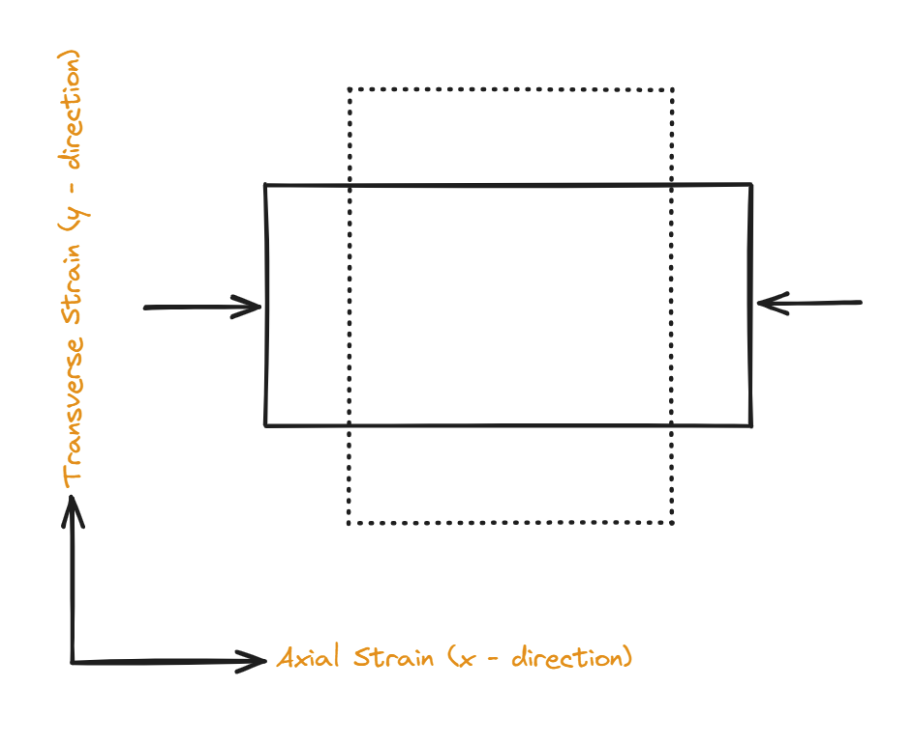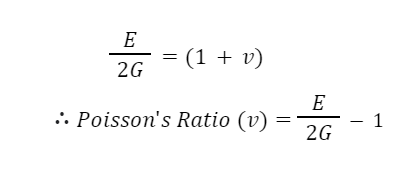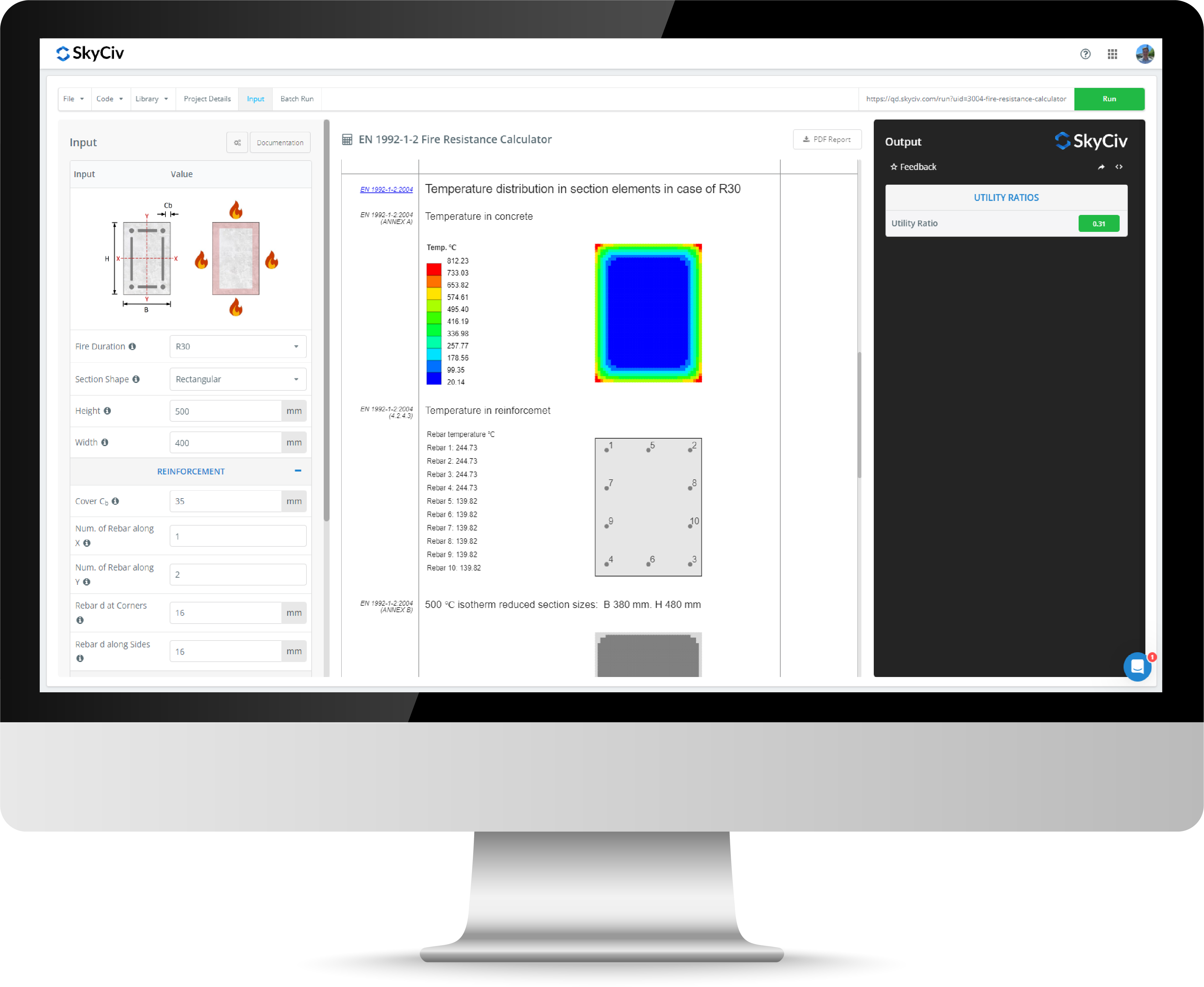Poisson's Ratio Calculator
The Poisson's Ratio Calculator allows engineers to calculate Poisson's Ratio based on a material. Poisson's Ratio can be calculated via two methods. The first option is entering Transverse and Axial Strain and the second option is by using Young's Modulus and Shear Modulus. Typically, common materials will have a Poisson's Ratio between 0 and 0.5.
About the Poisson’s Ratio Calculator
What is Poisson’s Ratio?
Poisson's ratio is a fundamental material property that characterises the relationship between transverse (lateral) strain and axial (longitudinal) strain when a material is subjected to an external force. It quantifies the material's ability to expand or contract laterally in response to applied tensile or compressive forces.

What does Poisson’s Ratio Measure?
Poisson's ratio measures the ratio of transverse strain to axial strain within a material under the influence of external loads. This property is crucial in understanding how a material deforms in different directions and helps engineers predict its behaviour under various mechanical loading scenarios.
How to calculate Poisson’s Ratio?
Two distinct methods, both available in the above Poisson's Ratio Calculator, can be used to calculate Poisson’s Ratio (v). These include:
- Transverse Strain & Axial Strain
- Young’s Modulus & Shear Modulus
Poisson’s Ratio (v) can be calculated using Transverse Strain and Axial Strain with the formula:

Poisson's Ratio (ν) can be calculated using Young's Modulus (E) and Shear Modulus (G) with the formula:

This formula can be rearranged to solve for Poisson’s Ratio (v):

Poisson Ratio of Steel
The below table provides a breakdown of the different Poisson's ratio of Steel. The steel poisson ratio for structural steel is typically taken as 0.27, but below shows a range of different poisson ratios for steel:
| Steel Type | Poisson's Ratio |
|---|---|
| Aluminium (Alloy) | 0.32 |
| Stainless Steel | 0.3-0.31 |
| Structural Steel | 0.27-0.30 |
| Cast Iron | 0.21-0.26 |
Poisson's Ratio Calculator FAQs
What calculation methods are available in the SkyCiv Poisson's Ratio Calculator?
Two distinct methods are available which show how to calculate Poisson's Ratio in the above calculator. The first method is how to calculate poisson's ratio from stress strain curve. The second method is using Young’s Modulus and Shear Modulus and combining it with the relationship of Transverse Strain & Axial Strain
Can Poisson's Ratio be negative?
Typically most materials have a Poisson's Ratio value between 0 and 0.5. When you calculate Poisson's Ratio with the above calculator you will be limited to finding the result of materials within this range. Some rare materials, referred to as auxetic materials can display a negative Poisson's ratio.
Can Poisson's Ratio be calculated from a stress-strain curve?
Engineers can calculate Poisson's Ratio from a stress-strain curve by analyzing the slopes in elastic and linear regions of the curve. From this Possion's Ratio can be determined as the negative ratio of transverse strain to axial strain.
Can Poisson's Ratio be calculated from a tensile test?
Yes, a tensile test where the mechanical properties of a material are measured by observing how it deforms can be used to determine Poisson's Ratio. The measurements of transverse strain (material contraction) and axial strain can then be used to calculate Poisson's Ratio.
Can Poisson's Ratio be calculated from Young's Modulus?
Yes, if you also have a result for the Shear Modulus.



